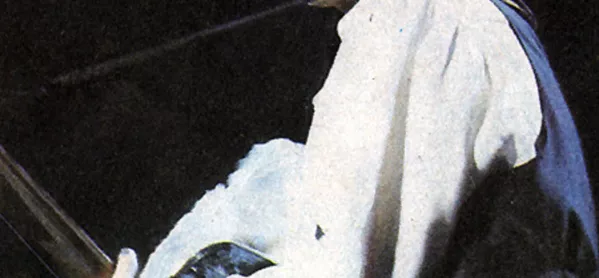I remember distinctly the moment I fell truly in love with David Bowie. I was 21 and my Uncle Andy had painstakingly filtered through his vast archive of albums to compile a mix CD of 20-or-so tracks. “I could easily name you my favourite 20 Bowie tracks,” he texted me afterwards, “but these are what I think yours would be.”
He wasn’t wrong. As I sat on my rickety single student bed in halls of residence and watched the sun set over Aberystwyth’s notoriously tempestuous beach, I heard the opening strains of his piano version of Life on Mars (arranged in partnership with the rather brilliant Mike Garson). And that was it. An infatuation was born that would last for years to come.
Uncle Andy’s CD sparked an enthusiasm which saw me familiarise myself with Bowie’s back catalogue. I discovered the raw delight of Ziggy, the subtle mastery of the Berlin Trilogy and the complex weaving together of concepts and melodies which were Aladdin Sane and Diamond Dogs. I marvelled at Robert Fripp on Scary Monsters making sounds that I never knew a guitar could. Bowie led me to Brian Eno, Scott Walker and Iggy Pop. I dug up interview footage and attempted to get to know the man behind the music. It wasn’t long before I was starting conversations with “Bowie thinks….” and answering internal conundrums with “What would Bowie do?”.
In particular, I loved one track, Conversation Piece, from Heathen, which was beautiful in its understatement - a song, about a man who lives above a corner shop, in which everyday emotions with no name are rendered magnificent by Bowie’s lyrics. Later, I’d have a line from that song tattooed on my back. “My essays laying scattered on the floor fulfil their needs just by being there,” summed up my battle to persuade the adults in my life that studying was worth doing for learning’s sake and not just because there might be a job prospect at the end of it. Writing made me happy and that was all the reason I needed to study English at university, despite being told I was “clever enough” to do law.
When I was 24 I’d reached the pinnacle of my struggle with mental illness. I’d lie on the floor of my rented room in Cambridge praying that I’d spontaneously combust, or someone would knock me out with a brick, anything to distract me temporarily from the searing agony of depression, the exhausting, circular arguments I had with myself every day, my weary body battered by endless cycles of bingeing, purging and starving.
In those grim hours I used to play Sweet Thing from Diamond Dogs over and over again, thinking that Bowie had perfectly captured my pain, the feeling that life was superficial and worthless with only misery bubbling beneath its narcissistic edifice. That song paradoxically articulated my desire to die and preserved my will to live, because if Bowie could make something so majestic and brilliant, something I considered to be beyond the realms of simply music, then surely life was worth persevering with?
Many years after my recovery, the Victoria and Albert Museum hosted an exhibition of all things Bowie. An early interview recording featured Bowie discussing mental illness. There is, he explained, a long and potent history of mood disorders in his family, something he believed was his biological destiny, had he not found a way to channel that “madness” into music.
This got me thinking. At the time, Michael Gove was still education secretary and seemed hell-bent on shaving anything he considered to be academically superfluous from the curriculum. Sports, arts, music and drama suffered unprecedented time restrictions and budget cuts, while qualifications which might broadly be described as “arty” were removed in swathes.
The present education secretary, Nicky Morgan, is an improvement and seems to recognise the link between wellbeing and academic performance and has made mental health a priority. Perhaps, then, she should consider giving more weight, funding and recognition to the arts? It is accepted wisdom that art therapy increases chances of recovery from mental illness, so it stands to reason that the arts might also be used as a preventative measure - a way to express complex emotions which might otherwise manifest in more destructive ways.
Music saved Bowie and Bowie’s music saved me. I hope that Bowie’s legacy will be that we allow children to express themselves artistically, so we can save them from becoming victims of the current mental health crisis.
Natasha Devon is the Department for Education’s mental health champion
Want to keep up with the latest education news and opinion? Follow TES on Twitter and like TES on Facebook



